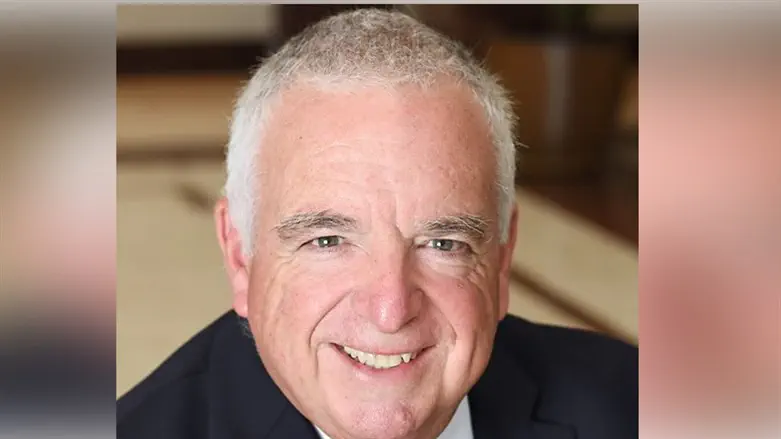
Did American journalists cover up for Yasir Arafat, as critics often claimed at the time? A longtime reporter for the Associated Press has finally let the cat out of the bag, and it’s not a pretty sight.
In a recent blog post, veteran journalist Dan Perry recounted an interview he did with Arafat for the AP in December 2001. The date is important, because for the previous fifteen months, Arafat had been leading a massive terrorism war against Israel, which the Palestinian Arabs called the “Second Intifada.” Wave after wave of suicide bombings and shootings, for which Arafat’s Fatah movement openly claimed responsibility. Those of us in Israel at the time will never forget the empty streets, stores and buses.
“Was Arafat the one sending crazies to blow themselves up in Israeli buses and cafes?,” Perry wrote in his recent blog. “The Palestinian narrative said violence began organically…and Israel overreacted. Something didn’t quite add up and my colleagues and I at the Associated Press resolved to figure the whole thing out.”
So, they set out for Ramallah, to “figure the whole thing out” by asking Arafat. Not by believing Fatah’s constant claims of responsibility for the attacks against Israel. Instead, they were going to ask Arafat.
The interview began with Arafat complaining that he was not getting enough praise for having “already arrested 17 key militants.” (Perry never uses the word “terrorists” a trend that AP continues to this day.)
Perry, in his recent blog: “I suggested that if violence so devastating was happening against his will for over a year, the forces carrying it out must be very strong indeed. ‘You are speaking with Yasser Arafat,’ he admonished me. ‘I know how to do it. I know how to do it.’ ”
Read that question again. Perry was challenging Arafat. He was saying, in effect: “You claim the terrorism is being carried out against your will, which means that the terrorists must be ‘very strong indeed,’ which means arresting 17 of them is woefully inadequate.”
Having failed to get a straight answer about the arrests, Perry next asked Arafat if he “regretting not doing more to prevent the outbreak,” since “1,000 Palestinians had been killed” as a result of the violence.
Perry was referring to terrorists who were killed in Israeli actions, and Arab civilians who were inadvertently killed when terrorists stationed their men and weapons in civilian neighborhoods, in order to use them as human shields.
The PLO leader’s response? “Arafat said the death toll actually stood at 2,000. I tried to argue, but Arafat insisted...”
Then Perry asked Arafat if he regretted not accepting Prime Minister Ehud Barak’s reported offer of a Palestinian state in over 90% of the "territories". “‘We have our independent state,’ Arafat protested. This would have been a major scoop! Did they sign a secret deal that they were keeping from the world? Arafat smiled in conspiratorial fashion: ‘Ask Barak’.”
Thus, there were three significant news items contained in the interview: Arafat was evasive about why he had arrested only 17 terrorists; Arafat was lying about the death toll, falsely claiming that it was twice what it really was; and a delusional Arafat was weirdly claiming that a Palestinian state already existed.
Which of these revelations appeared in the article that Perry and his colleague Karin Laub wrote in their December 8, 2001, article for the AP?
None of them. Not one.
—Arafat falsely inflating the number of fatalities. Not mentioned.
-- Perry and Laub did mention Barak’s offer of a Palestinian state. But instead of truthfully reporting that the delusional Arafat claimed the state already existed, they wrote: “But the Palestinians held out for more land and a ‘right of return’ for millions of refugees and their descendants.”
— And as for Perry challenging Arafat for arresting only 17 terrorists, here’s what Perry and Laub wrote: “Asked whether he would be prepared to face down resistance by the militants and their growing legions of supporters, Arafat smiled and said: ‘You are speaking with Yasser Arafat. I know how to do it. I know how to do it.’”
They simply covered up the fact that Arafat had evaded Perry’s question.
In fact, one could say the entire article was a cover-up. Instead of reporting what Arafat actually said—the delusions, the lies, the ducking of questions about the arrests—Perry and Laub portrayed Arafat as a man of peace who was bravely fighting the terrorists:
“He said he will not shy away from a confrontation with the militant Hamas and Islamic Jihad groups to revive what hope remains for peace…He said he will continue pursuing the rest despite the continuing Israeli airstrikes…He said he was ready to return to peace talks immediately…”
All this, despite the fact that Perry knew—as he wrote in his recent blog post—that Arafat’s claim of fighting the terrorists was wildly implausible, since there were so many of them, and he had arrested only 17 of those “key militants.”
Perry concluded his blog post with this interesting reflection on Arafat’s military uniform: “Perhaps it [was] borrowed from a play about a fairytale army whose ranks contain one single, solitary man. A very senior officer, who believed that everything was real.”
So today, Perry reflects wistfully on the delusional Arafat. But Perry knew the truth at the time. He knew from the interview that Arafat was a deluded, conspiratorial lunatic. But Perry covered it up.
It would have been very helpful to Israelis, American Jews, and everybody else to know the truth about Arafat. They could have made more informed decisions if they had that information. But for some reason, Dan Perry and the Associated Press didn’t want them to have it. I wonder why.
Stephen M. Flatow, is an attorney and the father of Alisa Flatow, who was murdered in an Iranian-sponsored Palestinian terrorist attack in 1995. He is the author of “A Father’s Story: My Fight for Justice Against Iranian Terrorism.”